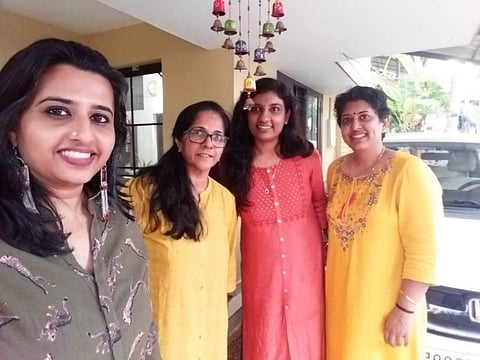

An advocacy group for concerned parents and stakeholders who are fighting to uphold the rights and responsibilities of persons with disabilities, TogetherWeCan (TWC) was the result of unabated parental love. Preetha Anoop Menon remembers waiting nervously outside a therapy centre in 2015 for her child with autism who was unable to talk. Her son emerged from inside with a broken arm and was rushed to the hospital.
She recounts, “We had entrusted our child with who we thought were ‘professional’ therapists. No parent deserves to find that an effort to help their children could harm them.” At the time, Preetha was working with Seema Lal, a psychologist and special educator on parental training. Together, they set up TogetherWeCan, an organisation that seeks to address these rights for children in the autistic spectrum.
“I've been working in the field of disability and mental health since 1998 and even since then, stories of malpractice and abuse in the sector have only been on the rise. Sadly, no parent has wanted to take it forward and without being the affected party, there was only so much that could be done. Preetha was willing to take it forward. We demanded that this practice of not allowing parents in during therapy sessions had to be stopped, if not for anything else, for at least the safety of the children,” says Seema.
Since the incident, they have filed multiple petitions to various authorities. In 2016, the Kerala State Commission for Protection of Child Rights (KeSCPCR) ruled in their favour with the judgement that every district in Kerala was to have a district committee to monitor and regulate such centres. However, this order never got implemented. So in 2017, the determined duo filed a PIL. Thanks to strong legal and media support, they were able to bring it into action.
Seema says, “The idea behind TWC is that we move from a medical model of working with children or persons with disabilities to a model of empowerment where the work is not seen as charity but as a means of serving their rights. The objective of any intervention should be to improve the quality of life of the other.” At TWC, they plan to start from the beginning, which is from the time a parent notices a difference in their baby due to the manner in which a professional delivers their diagnosis to the stage of early intervention which refers to the support they get from schools and their following vocation until the children become contributing members of society.
“There continues to be a huge power struggle with professionals who are very clearly following a top-down model,” she explains, “There are no experts when it comes to planning an intervention. No diagnosis affects any two families the same way and for the same reason, it has to be a combined effort of the professionals, the caregivers and all relevant stakeholders. With us, parents too have to take the responsibility. The purpose is not to blame professionals or the government, it is to create a society where all are valued.”
